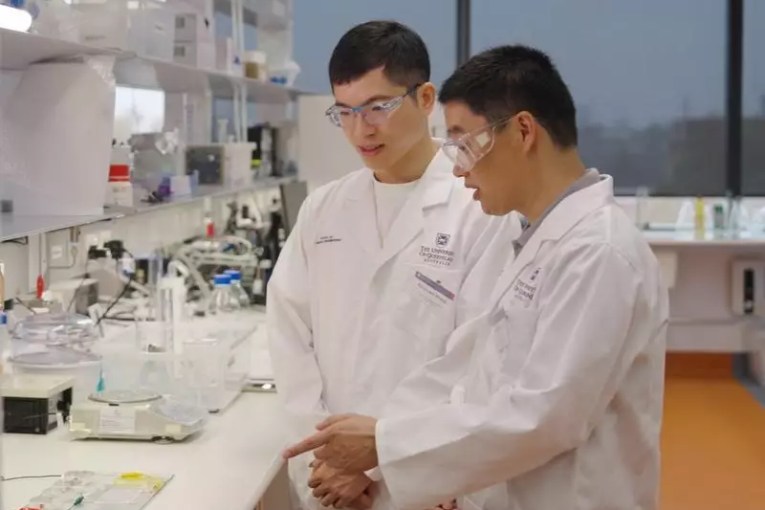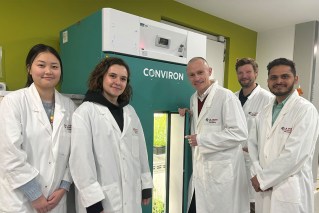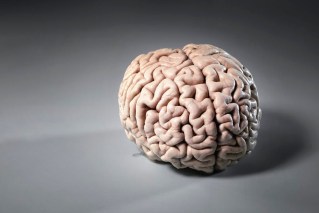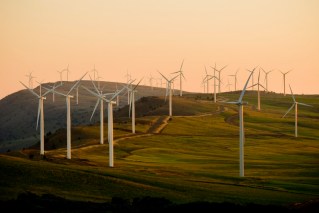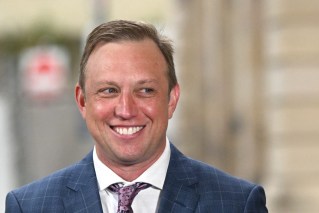A funny thing happened while Labor was sharpening its nuclear power punchlines
Energy Minister Chris Bowen recently played Opposition attempts to get nuclear power back on agenda for laughs. But a leading Queensland academic argues we should be exploring all the options, writes Robert MacDonald.

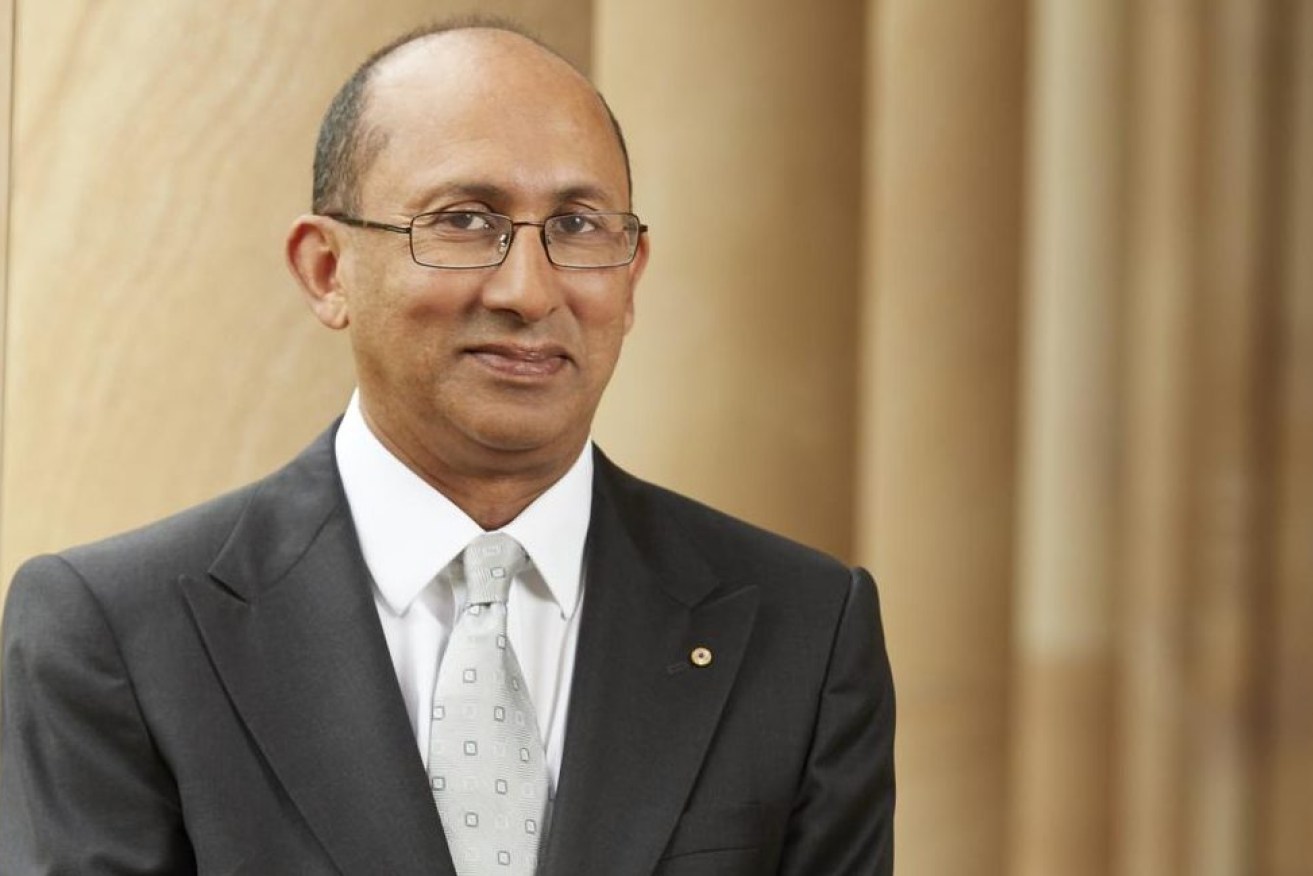
University of Queensland chancellor Peter Varghese. (Image: UQ).
You might have noticed pro-nuclear power promoters are on the march again.
They’ve been spurred on by Australia’s decision to buy nuclear submarines from the US and the increasingly urgent need to ensure a reliable replacement for coal-fired energy.
And they’re still the same easy mark they’ve always been for the anti-nuclear Labor Party.
Federal Energy Minister Chris Bowen won predictable chuckles in Parliament recently by mocking the Opposition’s latest efforts to get nuclear power back on the agenda.
It was the day Nationals Senator Matt Canavan introduced a private senator’s bill to remove Australia’s 22-year-old ban on developing a local nuclear industry.
“I can report to the House the ideas factory over there has been whirling away again, and there have been Liberal and National senators and members promoting nuclear energy again today,” Bowen said by way of a setup.
“But they don’t have much detail. They’ve just got a vibe,” he continued before dropping his possibly workshopped but still-lame zinger of a punchline.
“They don’t want the detail. They want to have their yellow cake and eat it too.”
Yuks all round on the Government benches.
Bowen knows he’s on a political winner. Nuclear power has always been a hard sell, for reasons of cost and safety. Remember Five Mile Island, Chernobyl and Fukushima?
And whatever nuclear energy proponents might say about the improved economics and reliability of a new generation of small modular reactors, who’s got the time if we’re going to get to net zero by 2050?
Even the optimists accept it would take more than a decade to deliver a nuclear power station in Australia, and that’s only after you make near-magical assumptions about winning national and local support.
Little wonder Bowen sees political value in mocking the pro-nuclear moment and dismissing its evidence.
“After deep consideration we will reject the installation of the most expensive form of energy, and that is nuclear energy,” he told Parliament.
But is that really the right way to go?
Bowen is the energy minister after all. And nuclear has become an important and low-carbon part of the energy mix in 30 countries around the world.
Nuclear now accounts for more than 10 per cent of global electricity production and an estimated 30 per cent of global low carbon energy output.
Perhaps, instead of political point-scoring and playing it for laughs, he should be considering any and all low-carbon options.
That’s just in case the complicated task of creating an electricity network that combines solar, wind, hydro and battery storage technology – some of it still being developed – doesn’t quite work out as planned.
Here’s what University of Queensland Chancellor and former head of the Department of Foreign Affairs and Trade Peter Varghese says in response to the question of what the best combination of technologies is to provide for reliable emissions-free electricity generation at affordable cost:
“There is no single correct answer to this question. Opinions will vary and differ,” Varghese writes in the forewrod to a Queensland University report, released last year, but still current, titled “What would be required for nuclear plants to be operating in Australia from the 2030s”.
“But if we are to have any chance of arriving at workable answers, we must be prepared critically to examine the various options.”
The report is the work of senior UQ engineering students led by Professor Stephen Wilson, head of UQ’s Centre of Energy Futures, with input from “many experienced mentors and advisors in nuclear science and engineering here and overseas”.
“Ever since I was involved, as a young diplomat, in the negotiation of bilateral nuclear safeguards agreements I have been interested in how nuclear energy can be deployed in a way which is safe, affordable and prevented from contributing to the proliferation of nuclear weapons,” Varghese writes.
“As the country with the largest reserves of uranium in the world, these are questions which should be a part of our public debate.
“Does it remain sensible for such a country to export uranium but prohibit the safe use of this technology for itself?”
Varghese acknowledges the prohibition of nuclear energy more than two decades ago “reflected the concerns of the time, especially about safety and waste disposal”.
“But does it still make sense for our times where climate change is a more urgent issue and where today’s modern, more compact engineering designs, especially small modular reactors, have reframed the safety and security concerns?”
Varghese says these are some of the questions this study examines.
The report’s authors say “it is not intended as an advocacy document for nuclear energy. Nor it is an anti-nuclear document”.
But, as Varghese writes, “Sound policy should be based on the best available information”.
“Nuclear power understandably attracts much emotion and I hope this study can help to place the nuclear energy debate in a wider context.
“After all we can never find the right answers unless we address the right questions.”
The report can be found here:
https://energy.uq.edu.au/files/5963/WhatWouldBeRequired-FINAL.pdf
